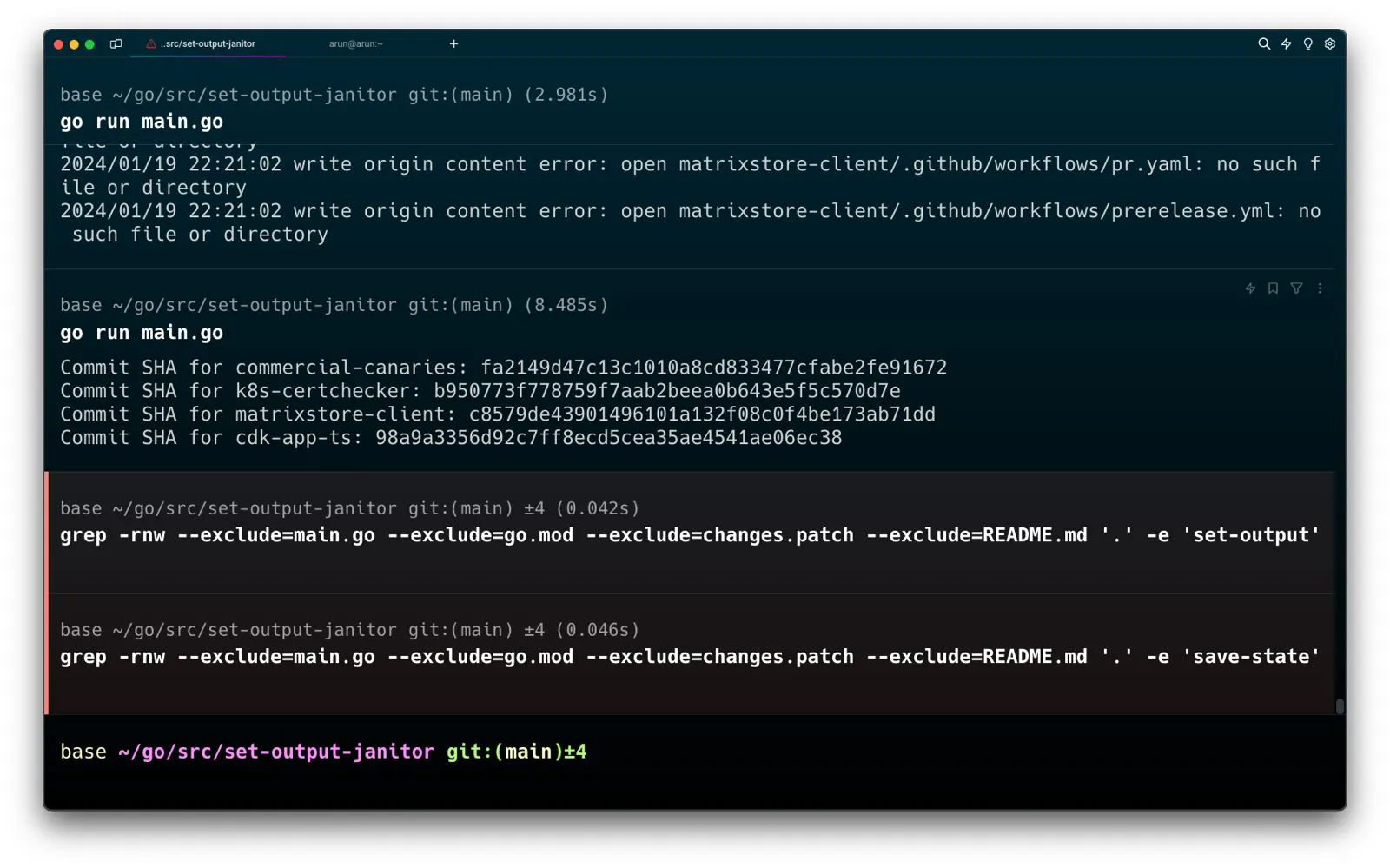The traditional approach for submitting a patch upstream is to fork (if you don't have write access to that upstream repository), clone the fork, make changes, commit and submit a pull request upstream.
This can take a lot of time depending on how big the repository is.
I recently came across this GitHub changelog about set-output command being deprecated, so I looked at the number of repositories that are still using this command, and over 220,000 workflow files are still using it. Cloning hundreds of thousands of these repositories, opening the workflow files in an IDE, making changes and creating pull requests obviously takes a lot of time.
I wanted to simplify the whole approach with these guidelines:
- Clone only the files that need to be patched.
- Make changes programmatically, instead of manually on an IDE.
- Generate patch files for the changes made.
- Create commit on the fork.
- Prepare pull request from the fork to the upstream repository. I was pleasantly surprised to learn that the last three points are possible with patch2pr, and GitHub API endpoints to create commits and pull requests.
I tied all of this together into a Go program set-output-janitor:
- It looks for a list of repositories (owner/repo format) in a
repos.txtfile, - Creates folders for individual workflow files,
- Makes changes, generates patch files,
- Commits and submits a pull request. All automatically, in seconds, thanks to Go's concurrency capabilities.

This was a really fun exercise, but also got a bit of hate because I was spamming organizations with the same content across different repositories. A few people unfollowed me on GitHub because whenever my PR was merged, it appeared on their newsfeed, one person reached out with a comment that I was flooding their inbox, and a few even looked me up on LinkedIn to figure out what was happening.
Next steps:
- I have stopped running this program because submitting many pull requests puts my GitHub account at the risk of suspension.
- I want to use a bot token to run this workflow. On the bot token front, I am currently blocked by GitHub's fine-grained tokens not having access to public-but-unowned data (which means, I can create commits on my forks, but not submit pull requests upstream just yet). In talking to support, it looks like fine-grained tokens won't have the ability to submit pull requests, but I am going to hold out hope and see what happens in the future. Of course, without needing the GitHub app to be installed on the organization, like in the case of dependabot.
I think this kind of consistent change can be a GitHub product feature in itself, with disclaimers that the maintainers will need to verify and test before deploying.